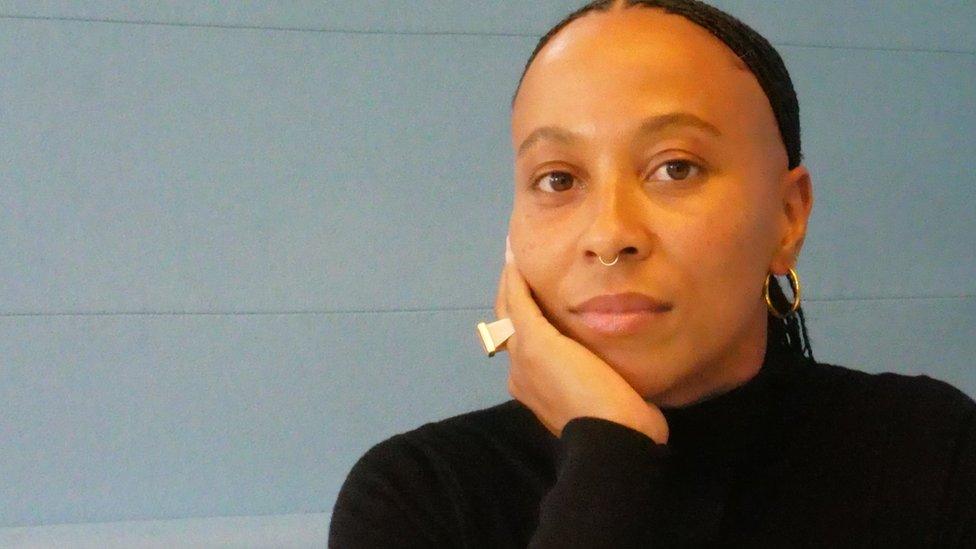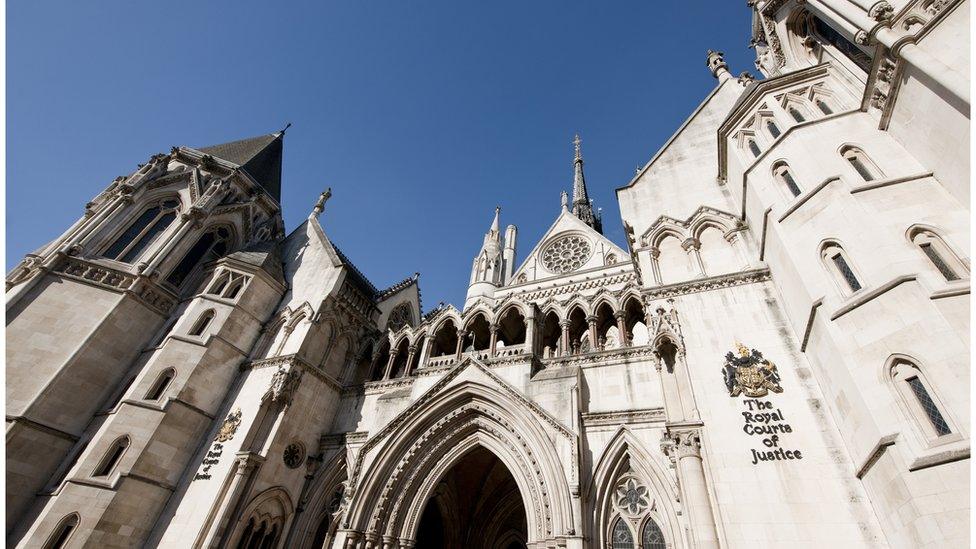Michael Lousada: Therapist accused of raping client during session
- Published

Ella Janneh, who has waived her right to anonymity, is bringing claims for assault including rape and negligence
A therapist accused of raping a client said his penis was "like a laser beam" that could "burn up trauma", the High Court has heard.
Michael Lousada, who had a clinic in Belsize Park, used sexual penetration as a "therapeutic technique".
Mr Lousada is being sued by Ella Janneh, who has waived her right to anonymity, after the CPS did not press charges against him.
Ms Janneh alleges she was assaulted during a therapy session.
She told the court she visited him after suffering panic attacks during consensual sex due to being abused as a child.
Mr Lousada, who has appeared as a guest on the TV show This Morning, denies the allegations, saying the sexual activity was consensual and part of "legitimate" therapeutic activity.
In court documents, Ms Janneh alleged that Mr Lousada told her "his penis was, 'like a laser beam' and that it could 'burn up trauma', and that he should use his penis to absorb the trauma".

The case is being heard at the High Court in London
At the start of a six-day trial in London on Friday, Nina Ross, representing Ms Janneh, said that Mr Lousada assaulted his client during a "body work" session after claiming to use penetration "as a therapeutic technique".
She said: "The claimant's case is that she did not consent to the sexual acts.
"She did not have the mental capacity to consent… nor did she have the freedom to consent due to the power dynamic inherent in a therapeutic relationship, nor did she have all the information she needed to consent because he gave her no warning.
"Nothing about her behaviour at the time or since has suggested she consented.
"She has thought of the incident as a rape from the day it happened."

Civil v criminal
Criminal and civil cases require different standards of proof, with criminal prosecutions requiring the higher standard of "beyond reasonable doubt", whereas civil cases can be ruled upon on "the balance of probabilities".
Ms Janneh only needs to prove that it was more likely than not that she did not give consent to the sexual activity, rather than prove that Mr Lousada did not reasonably believe that she did not consent.

She continued: "There is no evidence before the court of why the defendant decided to take that risk, or what possible benefits there were for a trauma victim like the claimant, or indeed anyone."
The court was told that Ms Janneh first visited Mr Lousada in 2011 and again in 2012 after suffering panic symptoms during consensual sex, which she believed stemmed from abuse as a child.
No sexual activity took place at that time.
'Release of energy'
She returned in 2016 for the "body work" session which she believed was similar to a physiotherapy session, coupled with talking therapy, Ms Ross said.
What happened caused her to suffer a panic attack, leaving her unable to communicate and "incapable of providing valid and informed consent" as a result.
Ms Janneh, who now lives in Melbourne, Australia, reported the incident to the Metropolitan Police a day later.
No charges were brought and the case was dropped in May 2018.
Barristers for Mr Lousada said while he accepted that penetration occurred, its purpose "was not to have intercourse, but to accommodate the claimant's wish to work with penetration", adding that the session was "about release of energy".
Mr Boyle continued: "The defendant slowly and carefully proceeded with the treatment session. At each stage, he asked for clear, verbal, consent to the next step proposed."
While he acknowledged that Mr Lousada's activities "may not align with societal norms", his work was a "legitimate activity".
The trial before Mr Justice Jeremy Baker continues.

Listen to the best of BBC Radio London on Sounds and follow BBC London on Facebook, external, X, external and Instagram, external. Send your story ideas to hello.bbclondon@bbc.co.uk